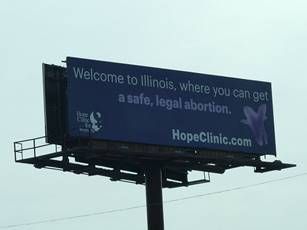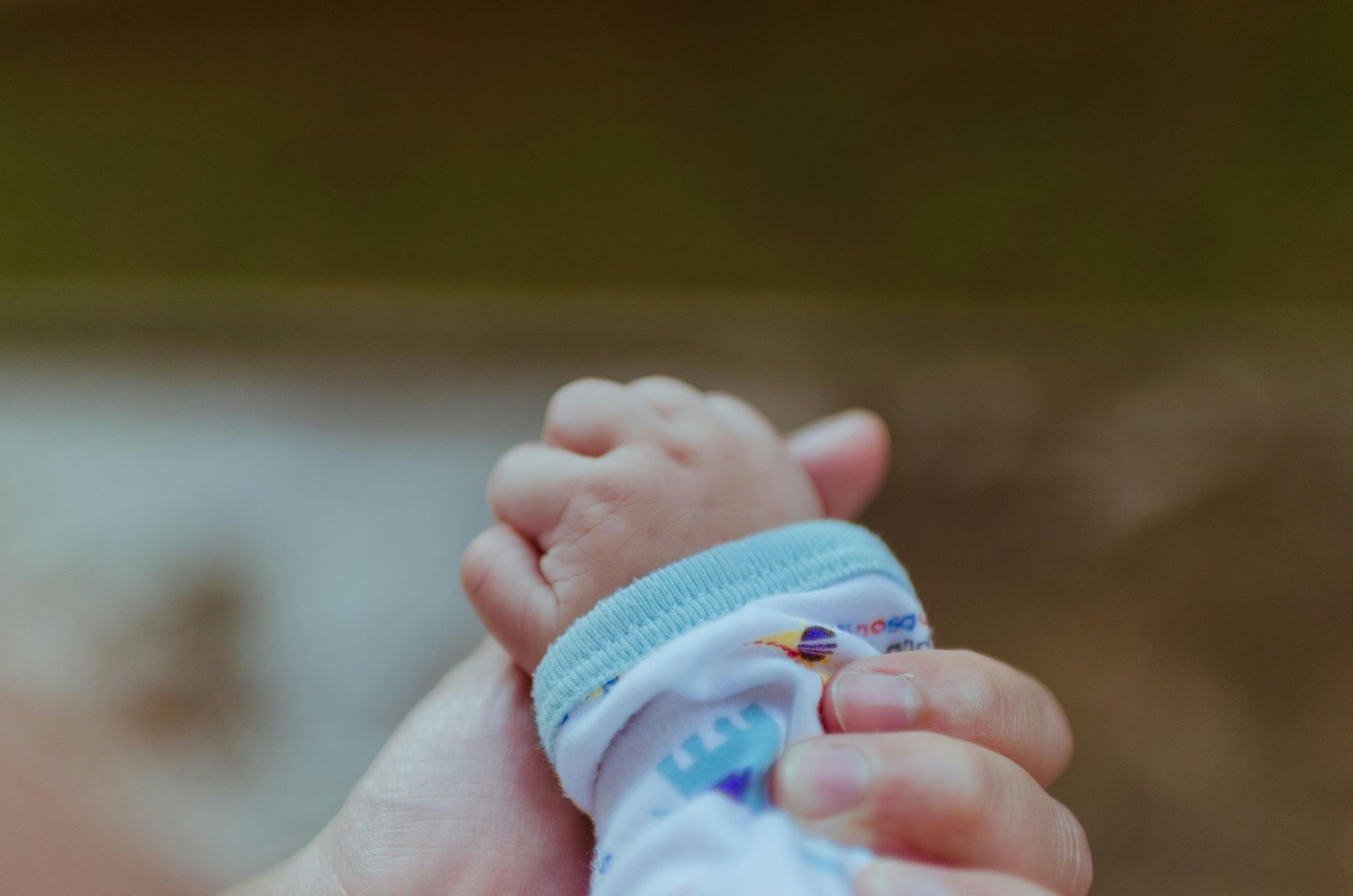How Roe's fall is making Illinois an abortion haven in the South and Midwest
Illinois' rising profile as an abortion care 'oasis in the Midwest' threatens to place it squarely in the crosshairs of anti-abortion supporters, who will increasingly turn their attention to border clinics.
Louisville Courier Journal
Hear this story
GRANITE CITY, Ill. ― One by one, the women walked into the Hope Clinic past a shouting man at the edge of the parking lot, past the security guard booth and through the code-secured front door.
Most made their way in the July heat up a flight of stairs and through another secured door before checking in for their appointment in a brightly lit waiting room decorated, in part, with rainbow and transgender pride flags.
Downstairs in the recovery room, where patients stay anywhere from 30 minutes to an hour after their procedures, each wall bears encouragement ― an artistic portrait of the late Supreme Court Justice Ruth Bader Ginsburg and signs that read: "Inhale courage, exhale fear," "All you need is love" and "Women are angels. When someone breaks our wings we continue to fly."
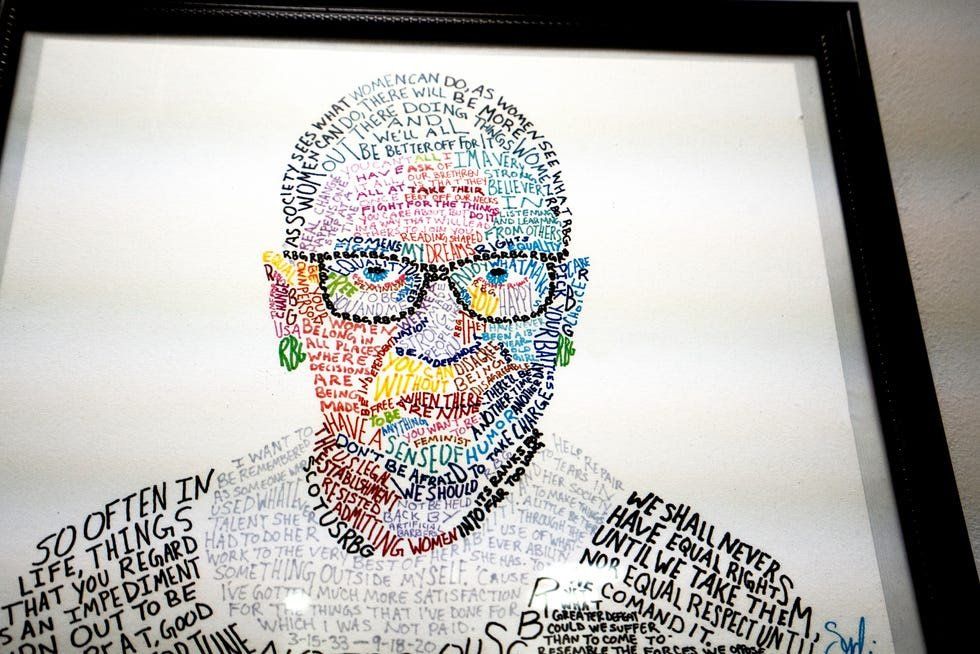
Outside, about 10 protesters lined the sidewalk in the summer sun. Most were silent. One woman held a sign that simply read: "I regret my abortion." Others paced the sidewalk, offering anti-abortion pamphlets to potential patients.
Granite City is less than a 20-minute drive from St. Louis, and as a border facility, Hope Clinic has long served Missourians seeking abortions. But now, patients from about 19 states have descended on the Southern Illinois location, including from Texas, Oklahoma, Louisiana, Arkansas, Kentucky and Ohio.
Illinois' rising profile as an "oasis in the Midwest" for those seeking abortion care threatens to place it squarely in the crosshairs of anti-abortion supporters, who, fresh from their victory in the right-leaning Supreme Court, will increasingly turn their attention to border clinics.
Julie Burkhart, co-owner of Hope Clinic and a longtime abortion-access advocate, said the facility is and will be a “point of refuge” going forward for Southern and Midwestern states.

The patient census has doubled since the June 24 court decision. The clinic is now serving 40 to 50 people a day, Amy Redd-Greiner, the front-desk supervisor at Hope, said in between handing patients their intake forms and answering the ringing desk phone.
And that patient demand is only expected to rise in the weeks and months ahead.
“I am grateful that right now, at this point in time, we're able to serve people and take care of people from other places, if they can get to us, who otherwise would go without,” Burkhart said. “I'm glad that we can be here. But I'm sad and I'm angry that people are having to travel.”
The day Roe v. Wade fell
On the day Roe v. Wade fell, hundreds of people called the Hope Clinic. The staff described it as "panic, panic, panic."
And in the abortion recovery room downstairs, in the middle of the uncertainty that day brought on, patients had one thing to tell staff: “Thank you.”
Front-desk employees of the Granite City abortion clinic usually field no more than 200 calls a day. But when the U.S. Supreme Court overturned the federal right to abortion on that day in June, more than 600 people called the office seeking help.
For many in the surrounding region, the Land of Lincoln suddenly became the only place to legally access abortion, following a series of state "trigger" laws banning or severely limiting the procedure.
Redd-Greiner said the “vast majority” of patients coming into the clinic since the Roe decision have traveled from out of state. The no-show rate among patients is also down.
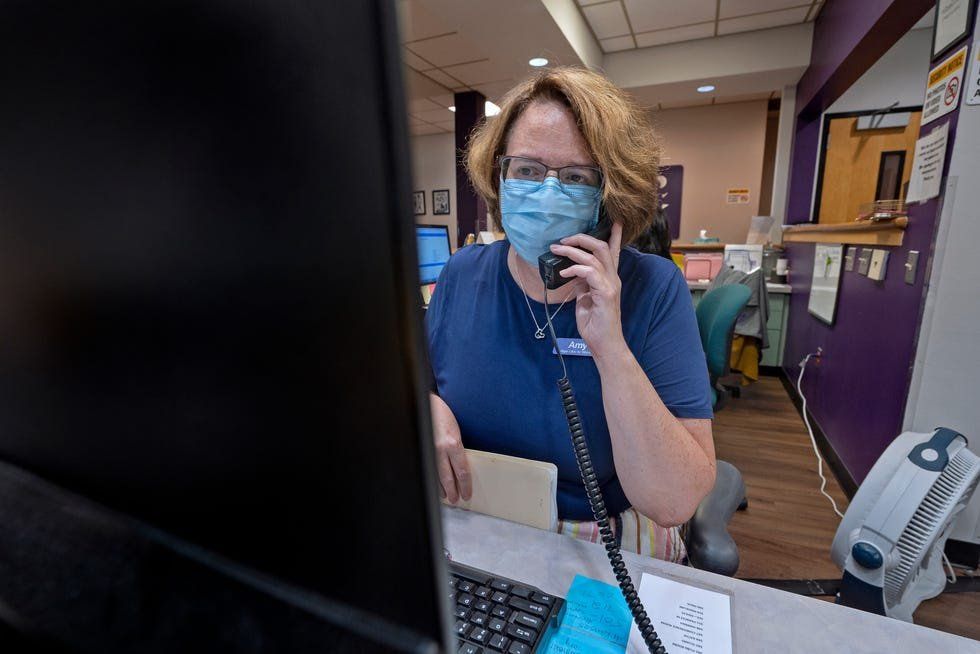
In fact, the entire state of Illinois is gearing up to see an increase in out-of-state patients seeking abortions, with Paula Thornton Greear, head of external affairs for Planned Parenthood of Illinois, predicting their clinics "could see as many as 30,000 abortion patients a year."
Indeed, Illinois already has seen out-of-state patients triple between 2015 and 2020 ― from 3,200 to 9,700. Providers in the state performed 46,000 abortions overall in 2020, according to the Illinois Department of Public Health.
Abortions for out-of-state patients have tripled since 2015
Between 2015 and 2020, the number of out-of-state patients traveling to Illinois for abortions rose from 3,200 to 9,700. Over the same period, the percent of abortions performed for out-of-state patients increased from under 10% to more than 20%.
19952000200520102015202005101520%200010.6%200010.6%
Out-of-state patients
Chart: Andrew Adams Source: Illinois Department of Public Health Created with Datawrapper
Meanwhile, Burkhart worries about the people who will travel to protest Hope Clinic’s work.
“Targets on us just got bigger,” she said.
Post-Roe America:One state’s fight over abortion access and where it’s taking women and advocates
'Either help or quit'
Daniel and Angela Michael have protested outside Hope Clinic for 29 years.
They estimate they’ve turned more than 6,000 potential patients away from the clinic. Two of the couple’s 13 children were adopted from people who had initially come to the clinic for abortions, Daniel said.
They run an organization called Small Victories, which provides things such as ultrasounds, formula and diapers to people. They commute from Highland, Illinois — about 40 minutes away — several times a week in a purple RV that advertises “Mobile Medical Unit” and “Real Hope ... Real Help."
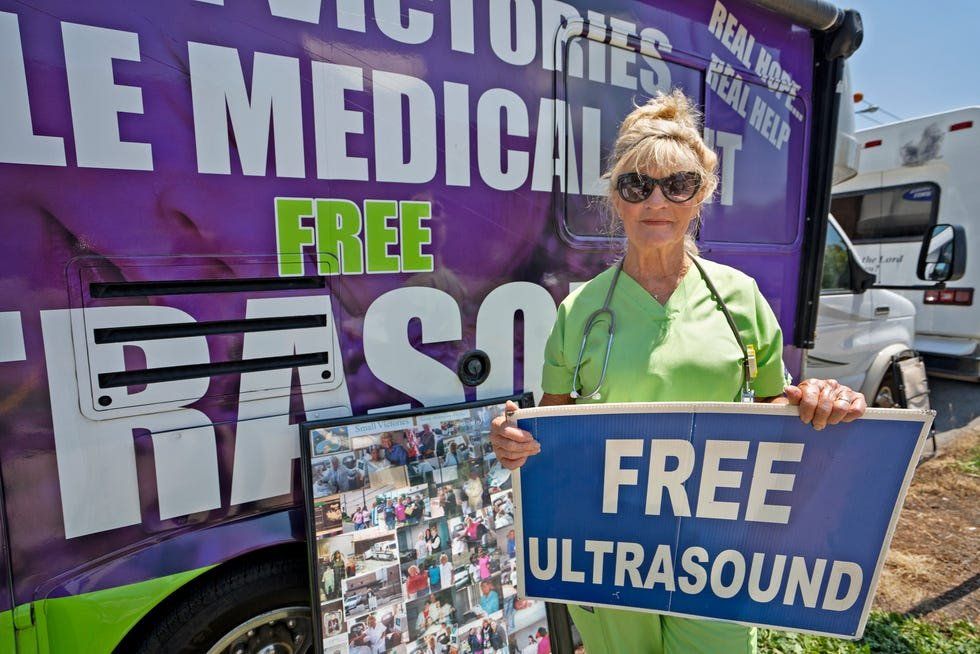
The Michaels, who identify as Christian, oppose abortion but criticized protesters who name-call and berate patients headed into the clinic as hypocritical.
“They always scream and yell at people and talk them out of abortion, but they won't help them after that,” Daniel said, his voice breaking as he spoke.
ROE AND RELIGION:Religions don't agree on abortion. That's why some faiths plan to take their case to court.
The couple raises about $100,000 annually and uses the money to drive to the clinic, as well as provide supplies for mothers through the first year after birth, Daniel said.
Both he and Angela feel like a lot of crisis pregnancy organizations make it too difficult for people to get assistance, such as requiring classes in exchange for supplies.
“You can’t make it hard for these girls,” Angela said. “You can’t selectively help women. That's where the hypocrisy comes. Either help or quit ...”
Despite their efforts, they don’t think Illinois will ever ban abortion, Daniel said, adding he supports the decision to put it in the hands of the states.
“So, what's the solution? Be here to offer women real hope and real help,” he said.
'Our fight in Illinois'
Nearly five hours north of Granite City in northern Illinois, the story is similar: Clinics near Chicago expect to see an influx of patients, many from Wisconsin, and not everyone is pleased.
Eric Wallace, co-founder of the Freedom’s Journal Institute, a Black-led, Christian, conservative group, has spoken out against the Planned Parenthood clinic in the village of Flossmoor since it opened in 2018.
“You don’t want your state or your village to be known as a place where you can go and get ‘the procedure,'" he said. “But it is what it is right now. And people will go out there, and we’ll protest and put up signs, and we’ll try to get people to go to Aid for Women.”
Eric and Jennifer Wallace, his wife and institute co-founder, said they helped establish the Aid for Women crisis pregnancy center in the building next to Planned Parenthood.
“That was in direct response to us finding out we would have Planned Parenthood in our backyard,” Jennifer said. “The unfortunate thing is that for far too many people, they cloak the Planned Parenthood centers as health care alternatives for women …"
“We don’t consider the idea of terminating your pregnancy to be health care,” Eric added. “Health care is to keep people alive.”
For the Wallaces, there’s a deep sense of sadness that there’s an abortion clinic in their community and that their governor is “very pro-abortion.” That Illinois could become a destination for abortions is ridiculous, they said.
The Wallaces see abortion as an unfortunate reality in Illinois for the foreseeable future. Instead of a total ban on the procedure, they’re planning to push for incremental change: restoring the parental notification requirement and shortening the timeframe in which abortion is allowed.
“Even if we’re not able to make it illegal, maybe we can make it rare,” Eric Wallace said. “That’s where, I think, our fight in Illinois begins.”
Another kind of fight: Expanding access
Jennifer Welch, president and CEO of Planned Parenthood of Illinois, calls the state an “oasis of care as millions of patients are stranded in a vast abortion desert.” She welcomes people in need to seek care from one of the 17 locations open around the state.
The Illinois and Wisconsin Planned Parenthood chapters have also partnered to allow abortion providers from the Badger State to be licensed to work at the Waukegan Health Center, which opened in 2020 just south of the Illinois/Wisconsin border, in anticipation of Roe’s fall.
Reference url to article: https://www.usatoday.com/story/news/nation/2022/08/13/illinois-abortion-epicenter-after-roe/10295232002/


